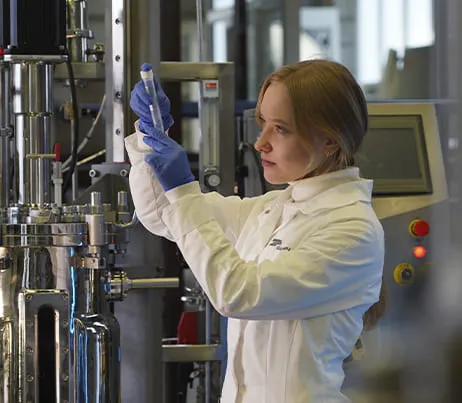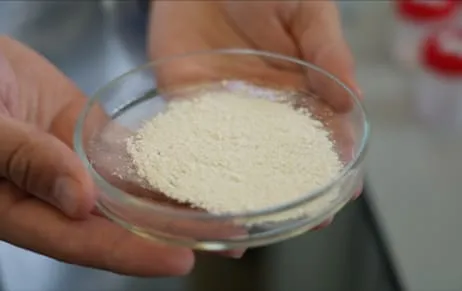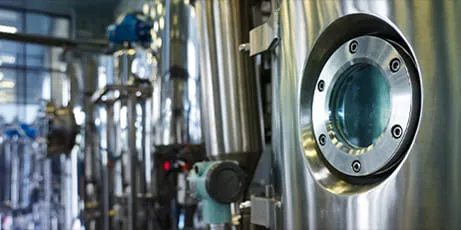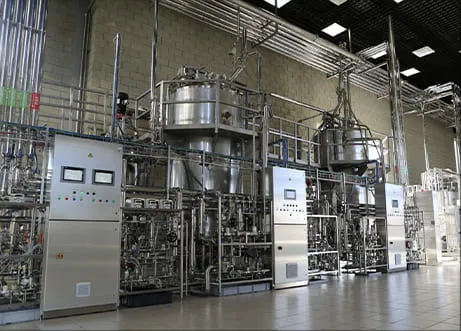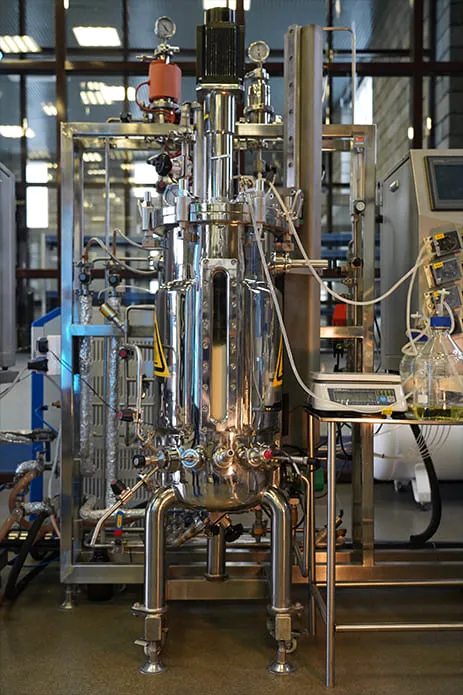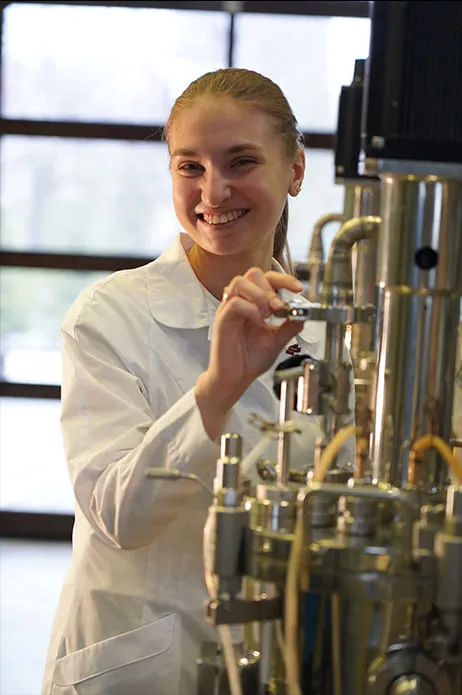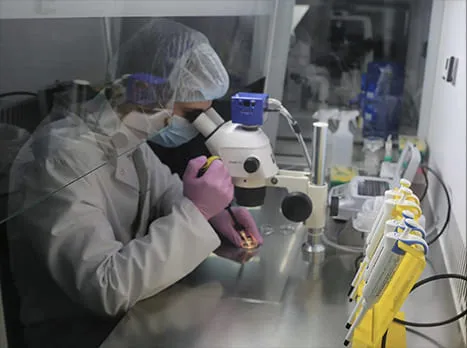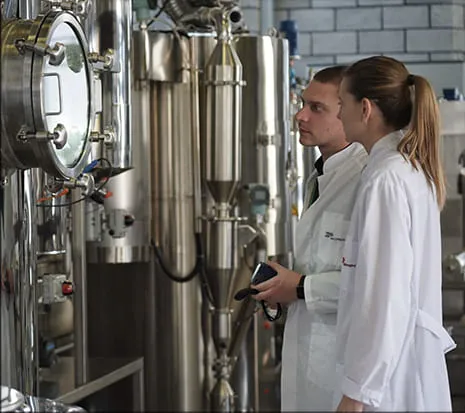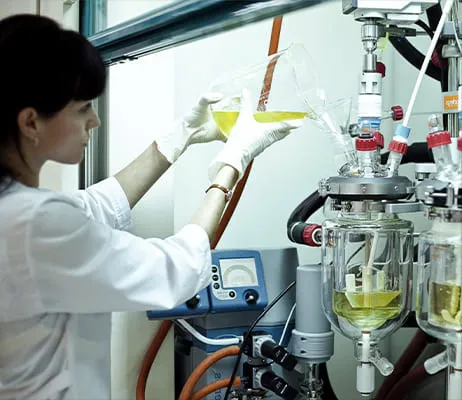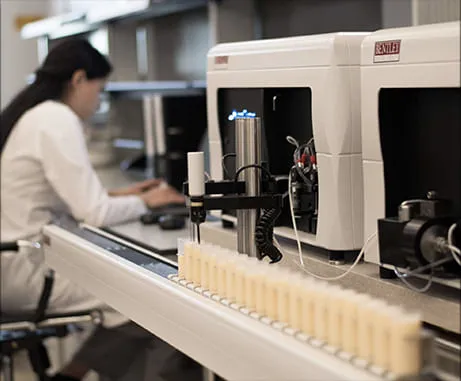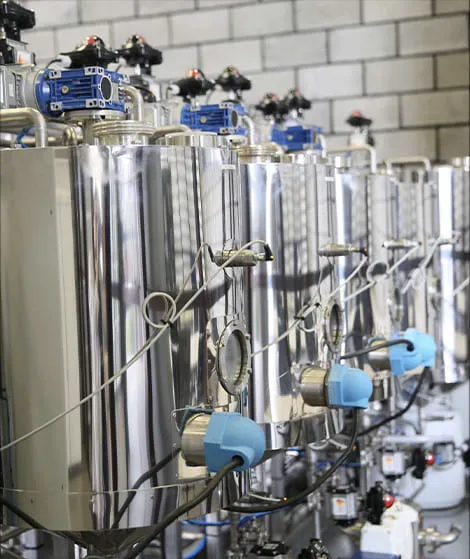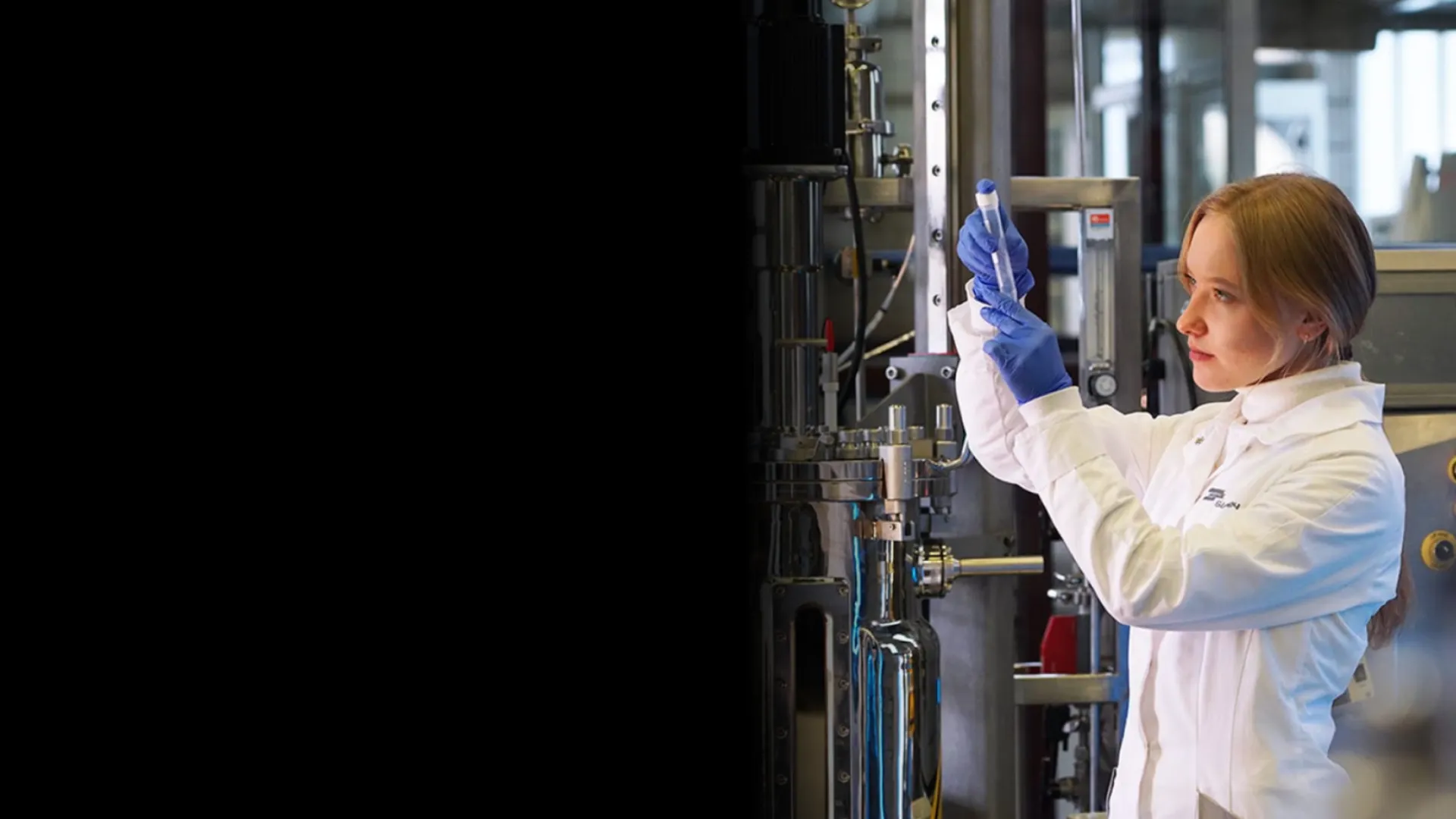Биотехнологии
Биотехнологии помогают создавать еду будущего. Используя наши таланты и научный опыт в биотехнологиях, мы качественно меняем продукты, делая их более вкусными и полезными.
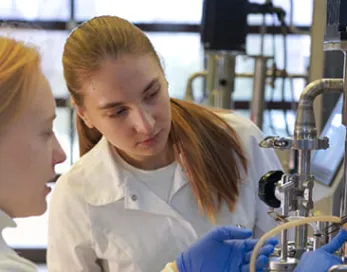
Сладкие белки
БИОСИНТЕЗ ЖИРОВ
Биосинтез жиров

Сладкие белки

– это перспективно?
Почему биотехнологии
– это перспективно?

Население Земли достигло 8 миллиардов человек. И эта цифра продолжает расти, что несет за собой ряд проблем: уже сейчас 700 миллионов человек по всему миру нуждается в еде, а 1 миллиард не имеет доступа к пресной воде. По мере развития человечества и роста населения Земли данные проблемы будут становиться все более острыми. Биотехнологии позволяют найти выход из сложившейся ситуации и сберечь ресурсы планеты. Это направление науки с помощью микробиологического синтеза сможет обеспечить производство качественных и полезных продуктов питания без вреда для экологии.
- Биосинтез жиров
- Клеточное питание
- Сладкие белки
- Редкие сахара
- Биосинтез жиров
Биосинтез жиров
Жиры важны для сбалансированного здорового питания, т. к. являются одним из ключевых строительных материалов для человеческого организма. Растительные масла – подсолнечное, оливковое, рапсовое, горчичное – привычный источник получения жиров.
Масличные культуры довольно требовательны к климату, а их выращивание приводит к истощению почвенного покрова, загрязнению почвы и воды химикатами и пестицидами. При производстве растительных масел расходуется значительное количество пресной воды и невозобновляемых энергетических ресурсов.
Производство биосинтезированных жиров, т. е. при помощи микроорганизмов, не зависит от климатических условий и не наносит ущерба планете.
Сотрудники Инновационного центра Бирюч сейчас создают лабораторию для разработки микроорганизмов, постановки технологии получения и экстракции жиров в Институте молекулярной биологии в Москве.
Перейти на сайт проекта
- Клеточное питание
Клеточное питание
В нашем представлении здоровье и питание едва ли ассоциируются с клетками организма. На деле именно клетки являются источником энергии и ядром здоровья. Что больнее всего «бьет» по клетке? Низкое качество продуктов, недостаточное усвоение питательных веществ, массовое применение искусственных ингредиентов, бесполезных и вредных.
Для того, чтобы оставаться здоровым, человеку необходим такой рацион, который позволяет регулировать питание на уровне метаболизма клеток.
Концепция клеточного питания кардинально отличается от традиционного подхода к еде как к источнику питательных веществ. Такое питание запускает аутофагию – процесс удаления поврежденных белков и органелл. Этот внутриклеточный «мусор» может провоцировать развитие возрастных заболеваний, таких как болезни Альцгеймера или Паркинсона.
Другими словами, клеточное питание – эффективный инструмент направленного оздоровления клеточных структур организма.
Перейти на сайт проекта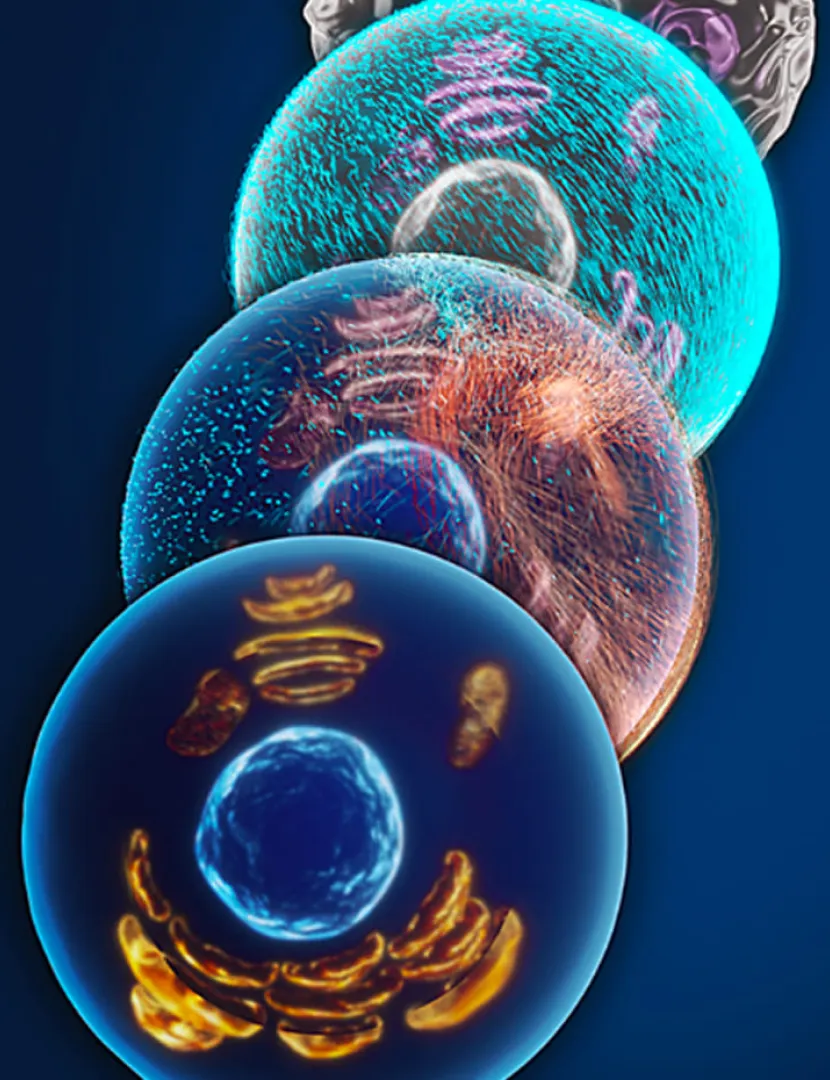
- Сладкие белки
Сладкие белки
Сладкий белок – натуральный природный компонент, который содержится в некоторых видах тропических фруктов. Например, сладкий белок под названием браззеин добывается из плодов южноафриканского растения под названием Pentadiplandra brazzeana, а такой сладкий белок, как монеллин, содержится в ягодах тропического растения Dioscoreophyllum из семейства луносемянниковых.
Молекулы сладкого белка слаще сахара в 800-3000 раз, менее калорийны и при этом не вызывают инсулинового отклика. Такое уникальное сочетание свойств позволяет решить две самые болезненные социальные проблемы нашего времени: ожирение и сахарный диабет – уже принявшие масштабы эпидемии. Однако экстракция натуральных сладких белков из фруктов экономически нецелесообразна. Они крайне привередливы к климату, а их транспортировка поднимает стоимость сырья до небес. При этом выход натурального сладкого белка из фруктов крайне мал.
Мы разработали аналог природного браззеина и монеллина – сладкие белки, полученные с помощью биотехнологий. Наш сладкий белок прошел множество тестирований и проверок. На его основе уже разработаны рецептуры мороженого, конфет, сладких напитков и других продуктов.
Перейти на сайт проекта
- Редкие сахара
Редкие сахара
Редкие сахара, такие как тагатоза и аллюлоза, – натуральные подсластители, моносахариды с простой молекулярной структурой, похожей на глюкозу. В природе содержатся в молоке и некоторых фруктах.
Редкие сахара замедляют всасывание глюкозы в кровь, показывают нулевой гликемический индекс. Калорийность сахаров втрое меньше по сравнению с сахаром. Они не оказывают негативного влияния на зубы.
Наряду со сладким белком редкие сахара помогут решить проблемы ожирения и сахарного диабета.
Лаборатории Инновационного центра разрабатывают технологии получения натурального подсластителя с помощью биотехнологий. Успех проекта позволит значительно снизить потребление сахара, не меняя при этом вкусовые привычки людей.
Перейти на сайт проекта
Ключевые проекты
Биосинтез жиров
Клеточное питание
Сладкие белки
Редкие сахара
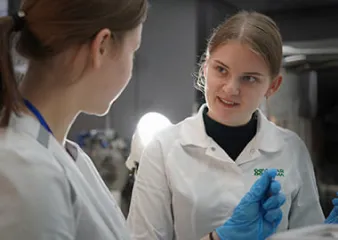
Научно-
исследовательская лаборатория
Научно-исследовательская лаборатория – одна из фундаментальных лабораторий ИЦ Бирюч. Без компетенций этой лаборатории не обходится ни один проект. Специалисты владеют разнообразными методиками пищевой и кормовой отрасли от элементарных титриметрических и гравиметрических методик до высокоаналитических – хроматография. Самостоятельно разрабатывают и внедряют методики на основе международных стандартов. Лаборатория оснащена высокотехнологичным современным оборудованием.
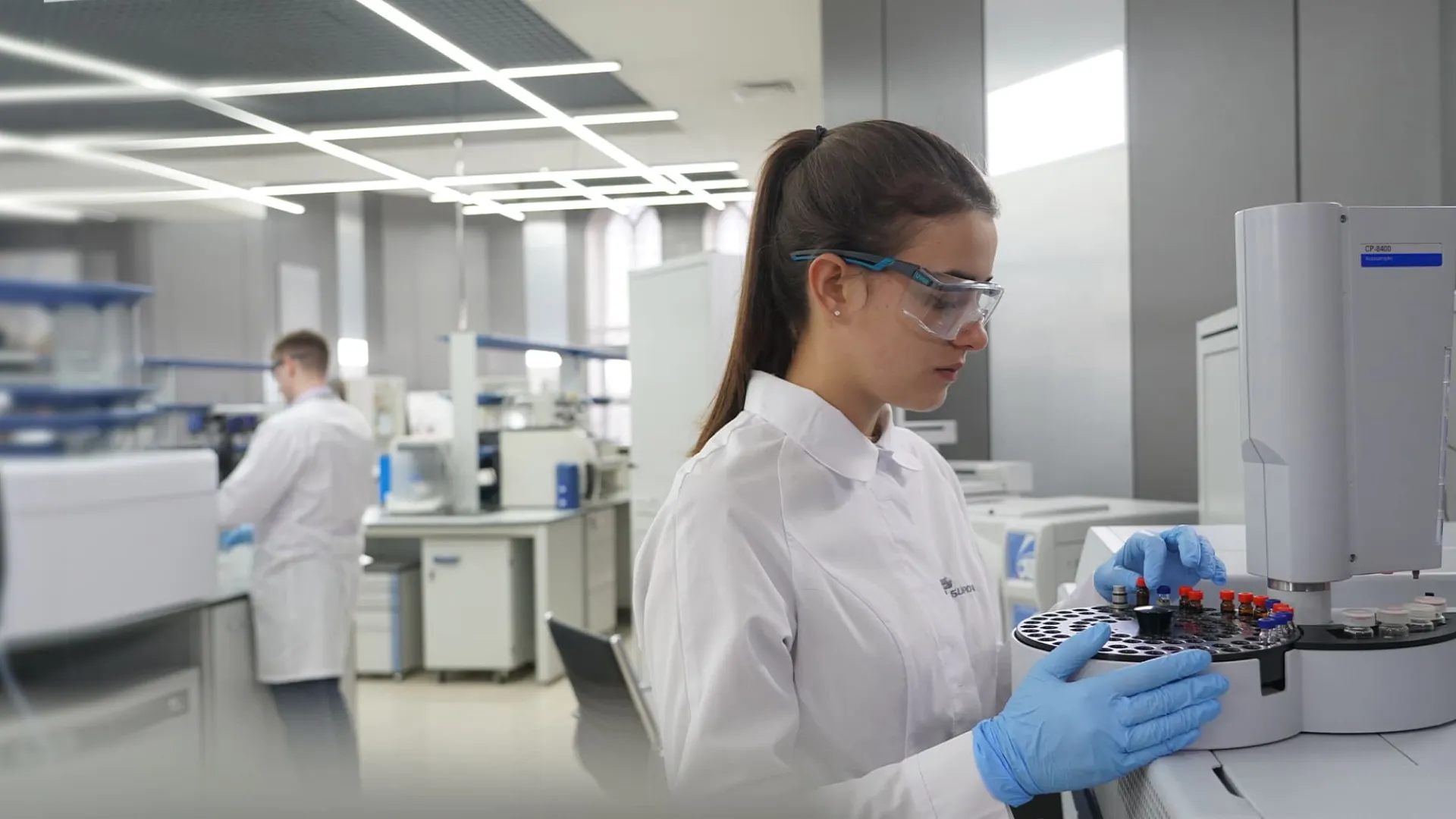
исследовательская лаборатория
Научно-исследовательская лаборатория – одна из фундаментальных лабораторий ИЦ Бирюч. Без компетенций этой лаборатории не обходится ни один проект. Специалисты владеют разнообразными методиками пищевой и кормовой отрасли от элементарных титриметрических и гравиметрических методик до высокоаналитических – хроматография. Самостоятельно разрабатывают и внедряют методики на основе международных стандартов. Лаборатория оснащена высокотехнологичным современным оборудованием.
Активы проекта
- Лаборатория биотехнологии ферментов
- Центр производства ферментов
- Центр прикладных исследований
- Музей микроорганизмов
- Комплекс чистых помещений
